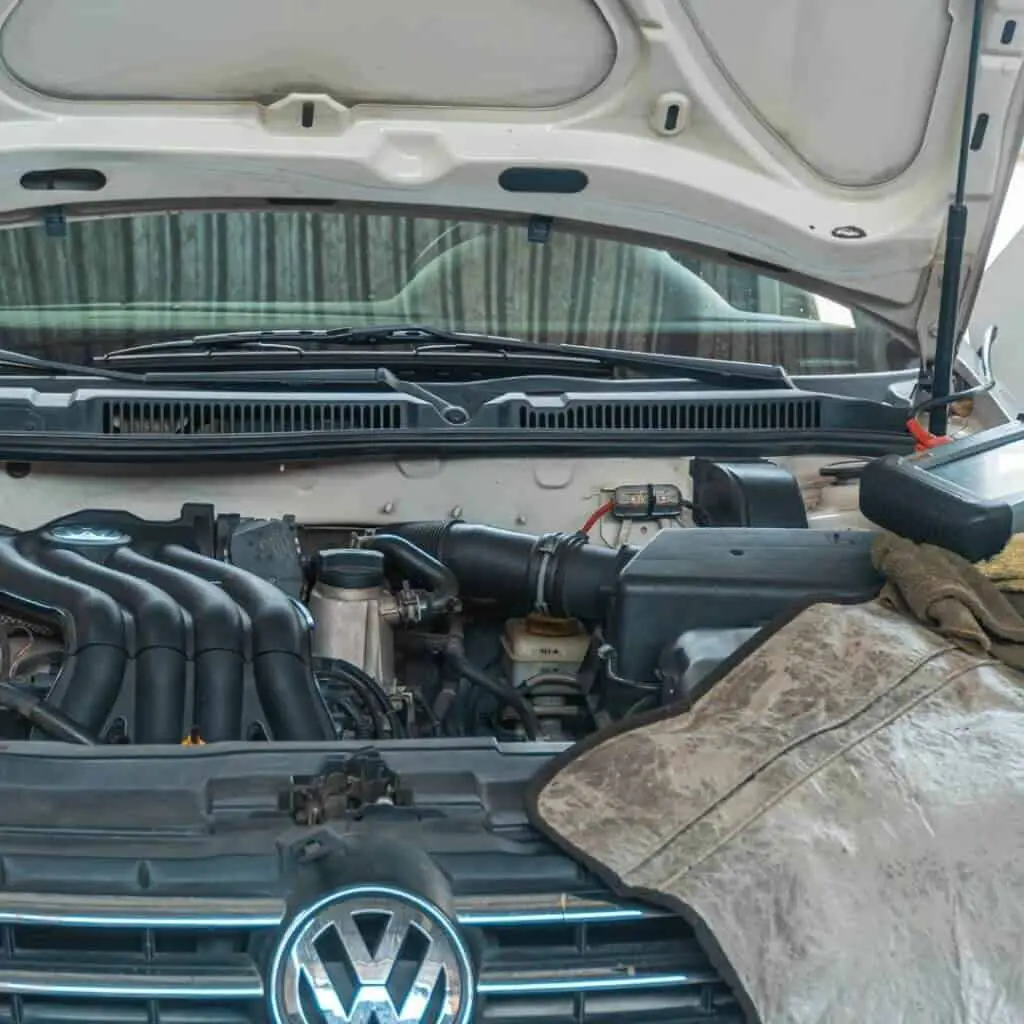Are you familiar with VW Atlas problems?
Volkswagen Atlas is a midsized three-row SUV that has gained popularity since its production in 2018. Customers prefer it for family vehicles because of its stylish design, high-tech features, and spacious interior.
The Volkswagen Atlas comes with powerful engine options, responsive handling and optional all-wheel drive for a broad range of performance. Within the vehicle, you will find a stylish and spacious cabin that is passenger-friendly and has the latest conveniences and safety measures.
However, since the first model, 2018, the car has been experiencing several issues. Let us explore some of the most common problems reported with this SUV.
Most Common VW Atlas Problems

- Transmission Problems
The Volkswagen Atlas utilizes an 8-speed automatic transmission in all models. While generally reliable, the Atlas’ transmission is susceptible to some jerking, rough shifting especially while driving on low speeds – 20mph. Drivers have reported delayed shifting as well. You may notice sluggish gear changes, especially when the vehicle is cold.
Hesitation on acceleration and irregular shifting patterns can result. This seems to stem from problems with the transmission control module’s adaptive learning capabilities.
Another issue noted by some Atlas owners is fluid leaks. Slow seepage from transmission seals or gaskets can occur over time. Leaks are often visible as reddish fluid under the vehicle. This results in low fluid levels and increased potential for transmission damage.
Reprogramming the transmission control module (TCU), replacing leaky seals, and servicing the transmission fluid and filter can help mitigate these issues in many cases. But some problems may require transmission overhaul or replacement, especially if mechanical damage.
The transmission control module on Volkswagen Atlas models can sometimes forget its adapted settings, leading to shifting issues. Resetting the transmission helps it re-adapt and can often resolve problems like delayed shifting, rough shifts, and flare shifts. [1]
- Sensor problems
The collision sensors were reported to provide false warnings of possible collisions even when there were no obstacles. Additionally, the car also experiences brake sensor malfunctions.
Many Atlas owners have recounted issues with the forward collision avoidance emergency braking system. The system typically uses sensors to help detect any potential collisions. The vehicle will habitually engage the brakes if there is a possible collision.
However, there have been reports following the problems arising from brake sensor failure. While driving, the system engages unexpectedly or does not work correctly at other times, leading to safety concerns. The mass airflow sensor may also malfunction. An error code is generated if there is a problem with these sensors. [2]
The crankshaft and camshaft sensors were also found to fail at times. These sensors tell the engine where the crankshaft and camshaft are during their 360-degree revolution. If the transmission of this data stops, even for a short time, the car will not know when to turn on the spark plugs. This might result in the vehicle stopping abruptly.
Sometimes, sensor issues may result from electrical problems such as faulty wiring. A recall was issued for the VW Atlas that experienced such problems. The problematic wiring in the weight sensor caused the airbag to be switched off even when there was someone in the passenger seat [3].
- Wiper Issues
VW Atlas is known to experience some problems with its wipers. One of the common issues owners report is the “Windshield Wipers Not Working” alert. Broken wiper motors or trouble with the switch causes this issue. If the motor is faulty, the wipers will stop working altogether or may operate intermittently.
The car’s wipers also experience random activation. There have been reports of the wipers randomly turning themselves on. The issues mostly happen when driving at a higher speed or hitting a bump unexpectedly. Furthermore, the wipers were found to be troublesome during certain weather conditions, such as cold, freezing snow or rain.
- Fuel Injectors Issues
The 2018-2020 VW Atlas has been reported to have potential issues with leaking fuel injectors. Owners have reported smelling gas while driving, especially from the engine compartment.
Visible gas leaks have also been observed when opening the fuel-filling cap. Another indicator of this issue is the illumination of the Check Engine warning light [4].
With that in mind, the National Highway Traffic Safety Administration (NHTSA) opened an inquiry into leaky fuel injectors on 2018-2020 Atlas models. The investigation was to trace back the source of the leakage [5].
The indicators of fuel injector leakage include the whole car smelling fuel. The strong gasoline fumes penetrate even within the vehicle cabin. There is also a significant increase in fuel consumption. Furthermore, the engine has a rough idle and is difficult to start when hot.
- Coolant Leaks
Coolant leakage in the Volkswagen Atlas could cause the engine to overheat. If this situation arises, you will get a warning on your dashboard indicating low coolant. Typically, faulty water pumps, coolant tanks, or damaged head gaskets are to be blamed for this issue.
- Break Malfunctions
Investigations into different Volkswagen Atlas SUVs uncovered that they are often prone to brake issues. Owners and renters of Volkswagen Atlas SUV, especially 2022 models, have complained about such issues.
Some owners have complained that their brakes produce loud squealing noises. These sounds make the driver uncomfortable. Since brake failure has been cited in many cases, it should be a critical security concern and be quickly repaired.
The VW Atlas has an emergency braking system that prevents front collisions. However, few owners have complained about issues that make this system unreliable. They have reported that the system undergoes an unintended activation of the emergency brake, causing either a crash or a near collision.
Volkswagen has recognized these brake issues and sought to resolve them. A recall was issued for model year 2019 to 2023 Volkswagen Atlas and Atlas Cross Sport SUVs because of the wiring issue that seems to result in braking issues [6].
Related: VW Tiguan Problems
Conclusion
Despite a few issues, the VW Atlas remains one of the most regarded SUVs with a comfortable driving experience. If owners can detect and act upon these issues expeditiously and effectively, they will enjoy the benefits of their vehicles for a long time.
Owners should remain up-to-date with the most recent data around their vehicle and take proactive steps to guarantee it runs efficiently and securely. Always remember that appropriate and regular maintenance is the key to the life span of any vehicle.
Read Next: Audi Q5 2012 Problems




